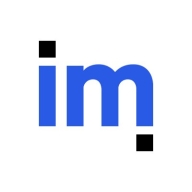


Imperva Application Security Platform and FortiWeb Web Application Firewall compete in web protection. Imperva stands out for its feature-rich offerings, while FortiWeb excels in machine learning-powered threat detection.
Features: The Imperva Application Security Platform offers advanced features like IncapRules, a user-friendly dashboard, and robust DDoS protection. It also excels in threat assessment and protection configuration. FortiWeb Web Application Firewall provides unique machine learning capabilities, antivirus integration, and effective zero-day threat management, demonstrating superior ability to minimize false positives.
Room for Improvement: Imperva could enhance its platform with better user interface design and real-time reporting. There's a demand for more streamlined dashboards and improved network management integration. FortiWeb would benefit from more intuitive advanced configuration options and comprehensive documentation to aid setup processes. Users have suggested improvements in these areas for a smoother experience.
Ease of Deployment and Customer Service: Imperva offers flexible deployment across hybrid and public clouds, appreciated for proactive technical support, though response times can sometimes lag. FortiWeb is noted for straightforward on-premise deployment with plug-and-play functionality. Its customer service is praised for promptness, although complex setups might require enhanced support.
Pricing and ROI: Imperva's pricing is on the high side, reflecting its extensive features and security level, but users report high ROI in high-threat environments. FortiWeb is more cost-effective, especially for small to medium enterprises, offering budget-friendly options. It provides a strong ROI relative to its feature set, appealing to businesses with simpler infrastructures.
WordPress security can be tricky, and that's where Cloudflare can be absolutely helpful for small businesses.
For the small project I was working on, using the basic tier provided a huge improvement at zero cost.
In terms of return on investment with Cloudflare, it costs my time to set them up, but basically once they're set up, it's done.
They know how much money they are losing while the system is down, so by increasing the possibility of not having a down website or web application, return on investment can be calculated easily.
This would help us address issues promptly, especially during unforeseen events like DDoS attacks.
Cloudflare does not offer hands-on technical support to fix customer problems but rather a self-service model.
I would rate the technical support with Cloudflare as excellent every time I've had to call them.
Their support is truly exceptional when I compare it with similar large-sized companies.
The back-end development team is available, and if any issue arises, they will help us immediately by providing solutions when contacted.
I would rate the technical support of Imperva DDoS as ten.
It is a SaaS tool, but the fact that they have workloads deployed across the world proves that it is a highly scalable tool.
The tool offers very good performance, even during high-traffic periods.
I rate the solution’s scalability an eight out of ten.
99% of customers are using the cloud version of Imperva DDoS protection, so they just purchase the new license and scale as needed.
For DDoS protection, I would not recommend Cloudflare.
I rate the solution’s stability an eight out of ten.
The service is very stable with no impacts during high-traffic periods.
The stability of Imperva DDoS is very good, as it seems they have a lot of servers around the world.
There's a need for improvement in areas like AI-based DDoS attacks and Layer 7 WAF features.
Despite these challenges, overall, Cloudflare remains the preferred solution compared to Azure, AWS CloudFront, and Google Cloud Armor.
Areas like how assessment, discovery, and payload are dealt with and how it all comes into your organization can be considered when trying to make suggestions to Cloudflare for improvements.
If the GUI includes notifications and improved logging capabilities that allow us to see traffic and store logs for six months, that would be very helpful.
If some of my customers want to migrate from F5 to Fortinet Firewall, or the Fortinet WAF solution, there are some migration issues.
Maybe Imperva DDoS could use endpoints to get information about the attacks before they commence from the endpoint level or establish cooperation with endpoint vendors to share this information.
That's where Cloudflare shines for smaller businesses – it's ten times cheaper than Akamai.
I find it to be cheap.
The pricing for the service is reasonable, neither excessively cheap nor prohibitively expensive.
If the customer has multiple websites, the price reduces automatically because it depends on the number only.
I would rate the pricing of Imperva DDoS as five, where one is very cheap and ten is very expensive.
The most valuable features of the solution are performance and security.
Techniques like minification and image compression reduce the size of assets, leading to better performance and faster user load times.
The solution has been able to compare it to the market, and I think the product has taken great strides in automating quite a bit of things, and they use a lot of AI.
Fortinet's pricing is way more competitive than Cisco or Palo Alto.
The features of FortiWeb Web Application Firewall (WAF) that have proven most effective in protecting web applications include web filtering, DDoS protection, geo-location blocking, and blocking SQL injection attacks.
I have utilized Imperva's Intelligent Traffic Filtering feature. This feature helps me understand how the attack is progressing and what is happening inside the requests to our website.



| Company Size | Count |
|---|---|
| Small Business | 46 |
| Midsize Enterprise | 8 |
| Large Enterprise | 25 |
| Company Size | Count |
|---|---|
| Small Business | 13 |
| Midsize Enterprise | 7 |
| Large Enterprise | 4 |
| Company Size | Count |
|---|---|
| Small Business | 83 |
| Midsize Enterprise | 25 |
| Large Enterprise | 61 |
Cloudflare is a highly-regarded Content Delivery Network (CDN) and a Distributed Denial-of-Service (DDoS) protection solution. The robust global connectivity cloud platform that is Cloudflare ensures users are able to connect to the Internet quickly, securely, and reliably. Cloudflare is one of the world's largest networks in the marketplace today. Using Cloudflare, businesses, educational entities, NGOs, vloggers, bloggers, and anyone else with an internet presence can experience more secure, faster websites and applications.
Currently, there are millions of Internet locations on Cloudflare, and the Cloudflare network
continues to grow every day by the thousands. The solution is able to fulfill the requests for
millions of websites seamlessly and serves on average 45 million HTTP requests per second.
Cloudflare has safe, secure data centers in close to 300 cities worldwide to ensure every
client request is filled as quickly as possible. It is Cloudflare’s edge network that makes this
possible by keeping content and other services as close to each client as possible, so the
information requests are always only seconds away.
Many organizations that work in democracy, civil society, human rights, or the arts are able to
access Cloudflare's highest levels of protection for free via Project Galileo. Additionally, official
election websites can be secured from hacking and fraud through Cloudflare’s Project
Athenian, also at no additional cost.
Cloudflare can also help organizations of all sizes develop a robust zero-trust strategy to
ensure the highest levels of productivity and profitability. Employees, stakeholders, and end users have a greater level of satisfaction and overall improved user experience, which can, in
turn, result in higher revenues and overall ROI. Zero-trust and BYOD (bring your own device)
access ensure end users and employees always have the best resources and technology
available to them at all times.
Cloudflare benefits
Cloudflare has many benefits. Some of its most valuable benefits include:
- Faster load times
- Robust DNS security
- Intuitive cloud Web Application Firewall (WAF)
- Free universal SSL
- Image enhancement
- Automatic browser caching
- Next-generation cloud load balancer
- Accelerated Mobile Pages (AMP)
- Rate limiting
- Minification
- Zero-trust capabilities
- Cost-effective
- Reduced carbon footprint
Reviews from real users
“Many websites require an SSL certificate because they sell stuff and want SSL. Cloudflare
comes with an SSL certificate built in. It's automatic. You sign yourself up for Cloudflare, and
an SSL certificate automatically protects your website. If you have a connection between your
website and your host, the server, Cloudflare, and the host, you don't necessarily need a
certificate.” Spencer M., Owner at Tech Exchange
“What I like best about Cloudflare is that my company can use it to trace and manage
applications and monitor traffic. The solution tells you if there's a spike in traffic. Cloudflare
also sends you a link to check your equipment and deployment and track it through peering,
so it's a valuable tool.” Daniel P., Network Engineer at Ufinet
“The most valuable feature of Cloudflare is the GUI. You are able to control the solution very
well through the interface. There is a lot of functionality that is embedded in the service.” PeerSpot user, Competence Center Manager at a tech services company
FortiWeb Web Application Firewall uses machine learning to reduce false positives, detects zero-day threats, and blocks DDoS attacks. It integrates with existing security infrastructure and provides SD-WAN capabilities, offering protection for websites and mobile applications.
FortiWeb WAF secures web applications with features like machine learning-based threat detection, DDoS attack mitigation, and robust integration capabilities. Additionally, it manages HTTP traffic and offers SD-WAN functionalities. Built for GDPR compliance, it supports API protection and bot mitigation while enabling secure mobile and cloud application access. Users implement it across multi-cloud environments and in data centers offering advanced security and compliance, including PCI DSS. Despite feature-rich abilities, users seek enhanced database updates, better enterprise integration, and more accessible analytics. Improvements in support response, documentation, and scalability are desired to strengthen its robust security offering.
What are the key features of FortiWeb WAF?FortiWeb WAF is widely implemented in data centers and financial industries, ensuring robust protection for web applications and sites. It supports multi-cloud environments on platforms like AWS and Azure, providing secure access while meeting compliance standards. Users benefit from enhanced application security and load balancing capabilities, making it a preferred choice in financial sectors that require VPN and SD-WAN consistency.
Imperva Application Security Platform delivers comprehensive and continuous web threat protection. Renowned for its ease of use, it shields web applications and databases from various cyber threats while integrating seamlessly with cloud and on-premises environments.
Imperva Application Security Platform protects web environments by offering advanced security measures against threats like DDoS attacks, SQL injections, and cross-site scripting. As a robust web application firewall, it provides extensive monitoring and bot management capabilities. The platform integrates content delivery networks for enhanced performance and scalability, while real-time traffic analysis ensures consistent protection. Despite its strengths, improvements can be made in policy management and customization options. Users seek better integration with third-party tools and more competitive pricing models. The inclusion of AI for enhanced analytics is also anticipated.
What are the key features of Imperva Application Security Platform?Imperva Application Security Platform is implemented in industries needing strong database and application protection. Companies use it to enforce geolocation restrictions and manage bots, benefiting sectors like finance and e-commerce where data security and threat monitoring are critical. Its ability to protect and ensure data accessibility makes it integral to business operations prioritizing cyber resilience.
We monitor all Web Application Firewall (WAF) reviews to prevent fraudulent reviews and keep review quality high. We do not post reviews by company employees or direct competitors. We validate each review for authenticity via cross-reference with LinkedIn, and personal follow-up with the reviewer when necessary.